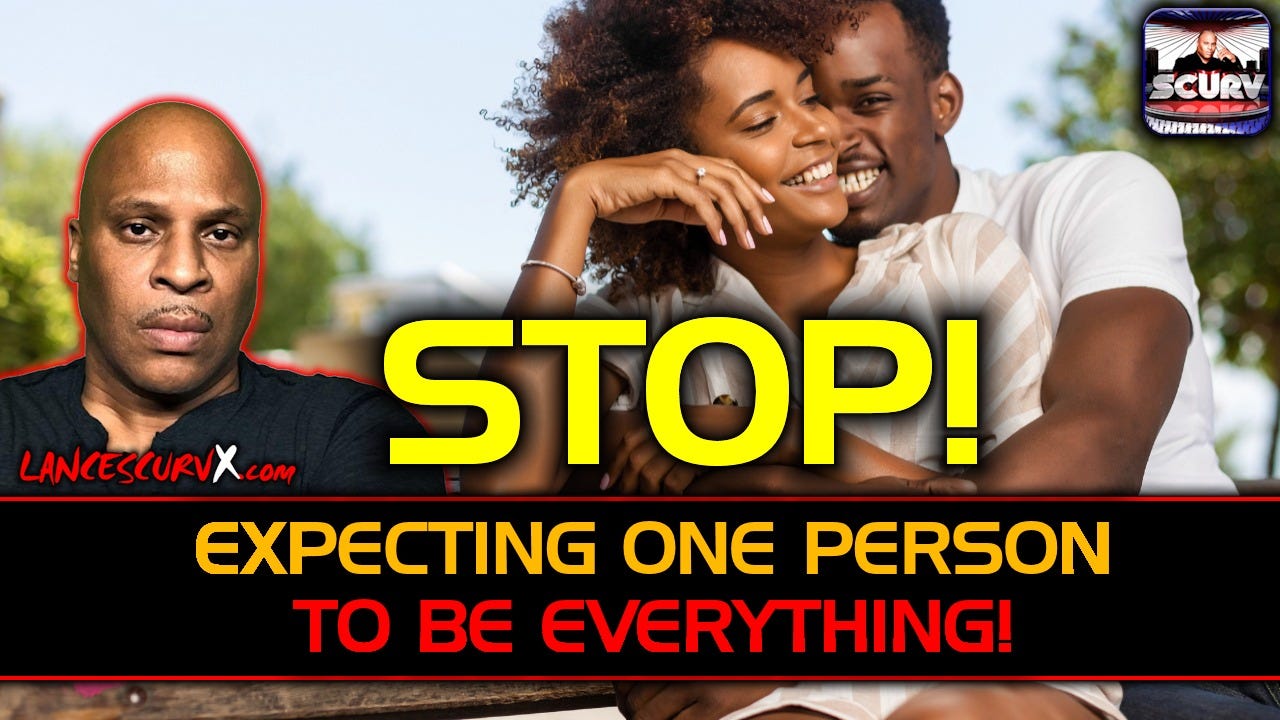It’s easy to believe that a perfect partner should be everything we need, all the time. We scroll through social media, seeing happy couples who seem to have it all—matching outfits, inside jokes, constant companionship, and flawless chemistry. But these moments are often just snapshots, not the full picture. Real life is not a highlight reel. It’s messy, complicated, and full of expectations that no single person can meet on their own.
This false ideal of a perfect partner has grown stronger in recent years. We now expect our significant other to be our best friend, our therapist, our motivator, our lover, our business partner, and our emotional support system—often all at once. But this expectation is unrealistic, even damaging. It sets people up for disappointment and keeps many from finding satisfaction in real, healthy relationships.
One major reason people feel unsatisfied in relationships is that they demand too much from one person. It’s not just about love and respect anymore—it’s also about whether that person can be your everything. But no human being, no matter how loving or supportive, can play every role in your life. And when we expect that, we set them—and ourselves—up to fail.
Before the age of constant digital connection, people had communities. They had family, friends, neighbors, church groups, coworkers—each relationship added something to their life. A spouse was never meant to carry the emotional and social weight of every relationship. Today, with smaller families, remote work, and fewer personal connections, we’ve put all that pressure on one person.
This is not only unfair—it’s also exhausting. It turns a relationship into a burden instead of a blessing. To truly connect with someone, we have to release the idea of perfection and embrace the reality of partnership. We must learn to spread our needs across many trusted relationships and understand the value of community in our emotional well-being.
The Many Hats We Expect Our Partners to Wear
In many relationships today, people expect their partner to take on several roles that used to be filled by an entire village. Let’s take a closer look at some of these unrealistic expectations.
1. The Therapist
We often expect our partner to listen to all of our emotional problems, sort through our past traumas, and offer wise solutions. While emotional support is part of a healthy relationship, deep emotional healing often needs a professional. Expecting your partner to be your therapist can drain them and leave both of you feeling overwhelmed.
2. The Best Friend
While friendship is a beautiful part of any romantic relationship, relying on one person to fill the space of all your friendships can be suffocating. We all need multiple social connections to feel balanced. A best friend relationship may include silly moments, shared hobbies, and inside jokes—but it's okay if your partner isn’t the only one you laugh with.
3. The Motivator and Cheerleader
Yes, encouragement is vital. But when your partner is constantly expected to lift your mood, push you forward, and cheer you on every day, it becomes a full-time job. They have their own challenges too. A healthy mix of self-motivation and outside support from friends or mentors is necessary.
4. The Lover and Fantasy Partner
Social media and entertainment have fueled the idea that your partner must always be attractive, romantic, and in sync with your desires. This puts unfair pressure on people to meet unrealistic emotional and physical standards at all times. People have ups and downs, and attraction changes over time—it’s normal.
5. The Financial Partner
Money problems are a leading cause of stress in relationships. But expecting your partner to be your financial provider, planner, and risk-taker can cause tension. Each relationship should include teamwork, but financial security should not rest on one person’s shoulders alone.
6. The Spiritual Guide or Life Coach
We may hope our partner will help us grow and stay on track in life, but expecting them to guide your personal path—spiritually or professionally—is asking too much. Everyone is on their own journey. While support is important, your direction must come from within.
7. The Confidant for Everything
Having someone you can trust is key, but sharing every thought, fear, and feeling with one person puts a heavy load on that relationship. It’s okay to have different people in your life for different conversations—family, friends, mentors—who can help lighten the load.
The Problem of Perfection
A big part of the problem is that many people are looking for “the perfect person.” Social media encourages this mindset by constantly showing us idealized versions of relationships. But perfection is not real. Every person has flaws, blind spots, and bad days. And so do you. Expecting someone to be perfect when you’re not perfect yourself is unfair.
When a partner doesn’t succeed in one of the many roles we expect from them, we begin to feel disappointed—even if they’re doing their best. This is how good relationships fall apart. One small failure can feel like a total loss because we expected them to be strong in every area. This is a setup for heartbreak.
How Things Used to Be—and What We Can Learn from It
A hundred years ago, life was different. People lived in larger families and tighter communities. Men had male friends they confided in. Women leaned on sisters, mothers, and neighbors. Not all emotional needs were placed on a spouse. And because of that, relationships were often more stable.
Back then, life was slower. People weren’t comparing their love life to celebrities or influencers. There was more focus on being present and building real connections. We can learn from that time. We can spread our needs across a variety of people and stop expecting our partner to be the only one we depend on.
Freeing Ourselves and Each Other
Let’s be honest: expecting one person to meet all of your needs is not only unrealistic—it’s unfair. Love grows when we give it room to breathe, not when we choke it with constant demands. Your partner is human. So are you. The beauty of real love is not perfection, but connection, honesty, and shared growth.
Instead of asking your partner to be everything, ask them to be what matters most—trustworthy, supportive, and loving. Then fill the rest of your needs through healthy connections with friends, family, community, and even time alone.
When we stop demanding perfection, we open the door for real, lasting love. We allow our partner to be human. And we give ourselves the same grace.
In the end, love is not about checking every box. It’s about building something together—something strong enough to last, even if it’s not perfect.
Spread your heart wisely. Don’t carry all your weight with one person. Let others in. Build a life supported by many hands, and you’ll find that your relationship has more room to breathe, grow, and thrive. That’s not failure. That’s freedom.













